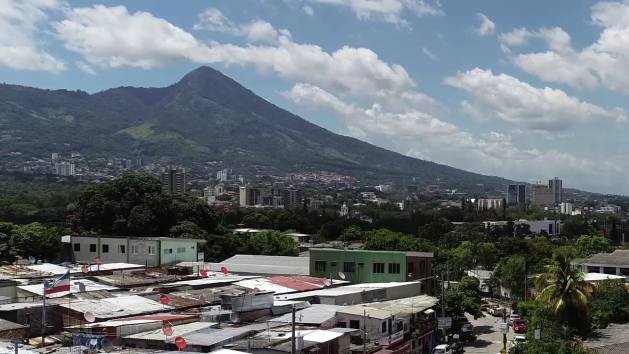San Salvador Becomes a Sponge to Reduce Damage from Landslides

SAN SALVADOR, Jan 11 (IPS) - Throughout its history, San Salvador has faced the danger of landslides - mud and rocks that slide down the slopes of the volcano at whose feet the city was founded in 1525.
The soil on these extremely steep slopes fails to absorb all the rainwater and, as in a snowball effect, the water gradually loosens up sections of land until producing mudslides that wreak death and destruction in the capital of El Salvador and nearby cities and suburbs.
In September 1982, a landslide claimed 500 lives in the Montebello residential development, northwest of the capital.
The most recent incident occurred on Oct. 29, when a landslide from the top of the volcano buried a number of homes in poor communities near Nejapa, north of San Salvador, killing nine people.
Due to the ever-present danger, the United Nations Environment Programme (UNEP), together with local organisations, is implementing the City Adapt project on the slopes of this 1,893-metre tall mountain.
The project seeks to reduce vulnerability in the area, which has increased as a result of climate change, with more intense and frequent rainfall.
So far 29 farms form part of the project, and have adopted measures to improve infiltration and prevent erosion, creating live and dead barriers, infiltration ditches between the coffee plants and catchment tanks that collect excess rainwater.
The excess water not only gives rise to landslides but also to flooding on the south side of San Salvador, whose metropolitan area is home to 1.8 million people - 27 percent of the 6.7 million inhabitants of this small Central American country.
The 29 farms represent a total of 423 hectares of land where measures have been carried out, and the restoration of 1,150 hectares of forests and coffee plantations is also planned, to turn San Salvador into a sponge city, according to UNEP.
The City Adapt project has reduced the risk of flooding for some 16,000 people and is expected to reach an estimated 115,000 by 2022.
In Latin America and the Caribbean, initiatives to turn vulnerable urban areas into sponge cities are also being implemented in Xalapa, Mexico and Kingston, Jamaica.
For more information, read this IPSNEWS article.
© Inter Press Service (2021) — All Rights ReservedOriginal source: Inter Press Service
 Global Issues
Global Issues